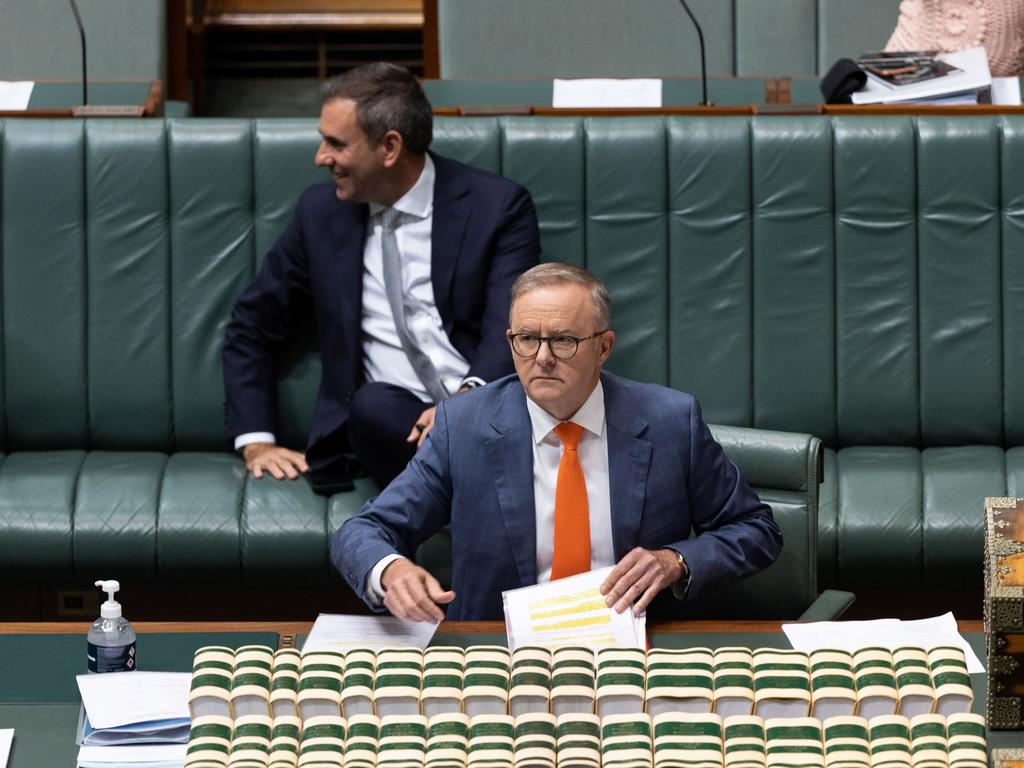Jim Chalmers urged to be proactive on productivity
The federal government must be proactive and offer incentives to the states to proceed with the types of reforms that will be recommended in Friday’s Productivity Commission report.

The federal government must be proactive and offer incentives to the states to proceed with the types of reforms that will be recommended in Friday’s Productivity Commission report, CEDA chief economist Jarrod Ball says.
Jim Chalmers in a speech on Thursday played down the Albanese government running with the PC’s five-yearly report.
“Obviously, no government is expected to pick up and run with every recommendation of the PC – no government has, and no government will,” the Treasurer said.
Of the reforms suggested in the last review, “half of these either involve or are exclusively for the states, which we’ll discuss with them”, Dr Chalmers added.
But Mr Ball said: “If the commonwealth is serious about beginning a new era of reform, it should take at least one tip from successful past playbooks. It should offer productivity payments to states that act on the to-do list.
“Leveraging the federal budget in this way can be justified on multiple counts, even in a highly constrained environment.
“First, given our scrambled tax sharing across the federation, states that reform first risk losing precious tax revenue, further eroding a revenue base struggling to keep up with the demands of vital service delivery in health and education,” Mr Ball added.
“Past analysis has shown states that go it alone in slashing inefficient taxes on insurance and stamp duty risk losing up to $1bn in GST payments.
“Further, the commonwealth always stands to gain the greatest fiscal dividend from productivity reforms given the breadth and strength of its tax base.

“Second, funding productivity-enhancing reforms should be a high priority for the economy and the budget. Lifting labour productivity back to historical averages would improve GDP by 1.75 per cent by the end of the next decade, while reducing debt by 2 per cent of GDP.”
Friday’s blueprint for lifting the country’s economic speed limit will highlight how productivity growth has slowed to just half the level of the 1990s, and that without an improvement Australians will be working longer and earning less over coming decades.
But PwC chief economist Amy Auster challenged the “grim reading” on the country’s productivity performance ahead of what she called “one of the most decisive federal budgets in recent history”.
“The numbers tell a different story,” Ms Auster said. “Our national productivity surged last year, rising by 2.2 per cent in 2021-22. This is a rate of growth not seen since 2002, and up from 1 per cent in 2020-21, and nil in 2019-20,” she said.
“Productivity isn’t dead. We are producing more with less – just not in the way the Productivity Commission recommended.”
Ms Auster said “the early stage of the pandemic saw the rapid-fire digitisation of economic activity”.
“The shape-shift in the business community was seismic. The switch to working from home was done so completely and so quickly that there will be case studies written about it for years to come.”
She said the big changes made during the pandemic showed there was a capacity to change.
“Let’s keep up the momentum while the platform is only smouldering instead of waiting for it to burn,” she said.








To join the conversation, please log in. Don't have an account? Register
Join the conversation, you are commenting as Logout